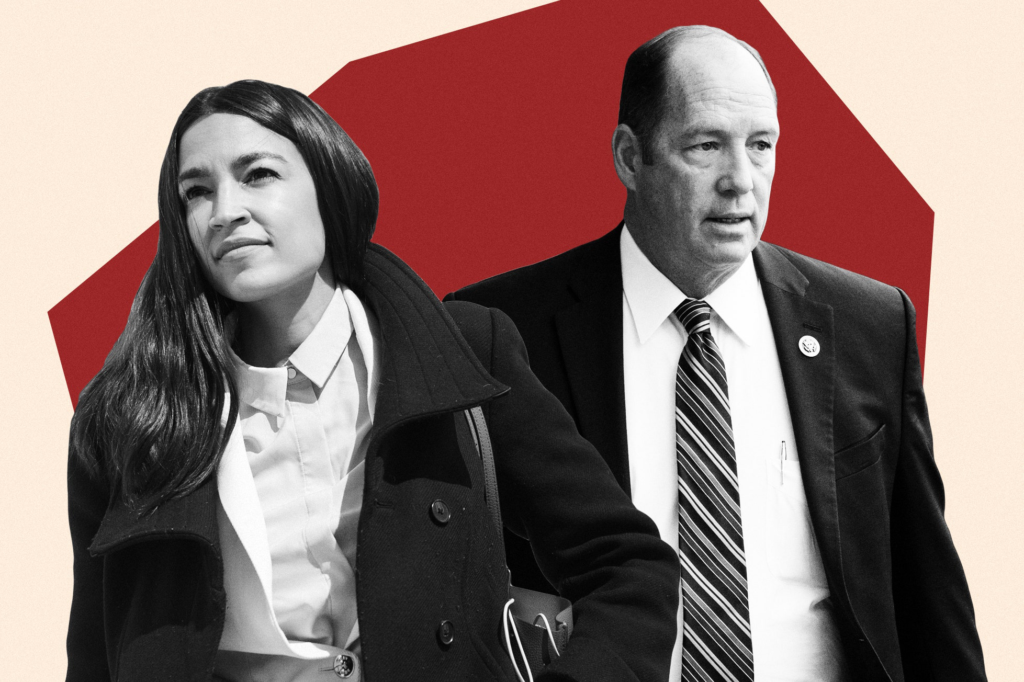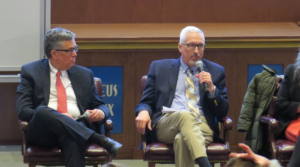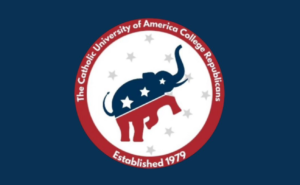American Politics: The Breaking Point of a Culture of Competition

Image courtesy of vanityfair.com
By Eva Lynch
Over forty years ago, Jane Curtin became the latest target of the sardonic repartee characteristic of Dan Aykroyd’s Weekend Update. The engagement was a humorous amplification of the state of American politics in the 70s, yet is all too relevant today at its metamorphosis from lighthearted humor into a sad prognostication.
The humor of Aykroyd’s and Curtin’s banter derives directly from the American overvaluation of competition, the glorification of winning, and the subsequent motivation to avoid losing at all costs. This culture of competition dominates our political sphere today in which the current president’s campaign platform for reelection is to not only be great, but to be the best; in which Americans vote for a president based on who they want to lose, not who they want to win and lead; in which congressional representatives are caught shouting derogatory insults at their colleagues on the steps of their workplace.
The toxicity of America’s culture of competition came to a head when Rep. Ted Yoho (R-FL) accosted Rep. Alexandria Ocasio-Cortez (D-NY) on the steps of the Capitol building. In response to her virtual comments regarding unemployment, crime rates, and gun violence in New York, Yoho was overheard by a reporter telling Ocasio-Cortez, “you are out of your freaking mind.” Ocasio-Cortez responded that he was being “rude” and proceeded to enter the Capitol to cast a vote, from which Yoho had just come from doing himself.
Yoho’s parting thought was heard and publicized by a nearby reporter:
“F—ing bitch.”
But it’s the aftermath of this brief yet explosive encounter that proves the issue of a culture of competition: Yoho and AOC took to the House floor on Wednesday and Thursday, respectively, and took House time and taxpayer dollars to hash out their personal conflict.
This use of government resources by public servants to pursue personal agendas is a bipartisan issue and may represent the boiling point of the inherent conflict of the two-party system; with a foundation in competition, this violent crossroads was inevitable.
In 2015, its first year of production, Hamilton star Lin-Manuel Miranda gained $6.4 million from his musical featuring the foundational rivalry between statesmen Alexander Hamilton and Aaron Burr. Not only was the U.S. founded upon competition, by natural competitors, and with the intent to be the best, but this notion is so alluring to Americans that, in the same year, the average spectator paid $1,000 for one ticket to almost three hours of historically-accurate partisan conflict.
Last week’s encounter between AOC and Yoho begs the apparently age-old question: how long can the two-party system last?
The initial principle of the system is essentially checks and balances, maintenance of which is still being pursued by many current and former politicians.
At former representative and civil rights activist John Lewis’ funeral, former president George Bush said of his political opponent yet close friend, “Listen, John and I had our disagreements of course – but in the America John Lewis fought for, and the America I believe in, differences of opinion are inevitable elements and evidence of democracy in action.”
However, if American politicians cannot resist the reduction of the basal system to petty self-vindication and popularity votes, many Americans and experts argue that the system is obsolete. So, what’s the alternative?
While in theory scaling down would be the easiest solution, a singular dominant mindset is exactly what the two-party system was created to prevent. Accordingly, the only viable solution is expanding to a multiparty system. In the 2018 VOTER survey, 68% of Americans reported a desire for at least one additional major party; those who expressed this desire included Democrats and Republicans alike, as well as the majority of independent respondents. Regardless, any change would necessitate a complete revamping of the electoral system and will require more bipartisan cooperation and support than may be possible, considering recent events.






